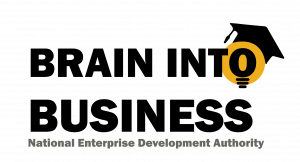
As a Small Island in Indian Ocean, Sri Lanka is known for its rich cultural heritage and natural beauty while having several notable brand names across various industries domestically and internationally.
However, that is not enough to elevate from the current economic crisis in Sri Lanka. Developing 500 brands during an economic crisis in a country can be approached strategically to help businesses stand out, inspire confidence and signal resilience. Thus, National Enterprise Development Authority (NEDA) has taken this responsibility in consideration of Micro Small Medium Enterprises (MSMEs).
Southern Province Inaugural Program of "B500 Project"
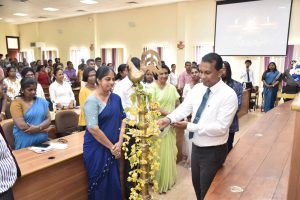
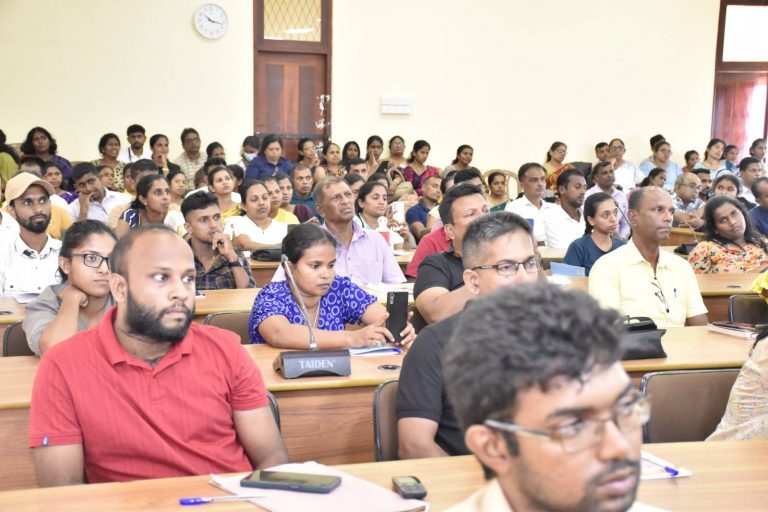
National Program to Develop 500 Brands
? Highlights from the Southern Province Inaugural Program of the "B500 Project" ?
The Southern Province Inaugural Program under the "B500" national project to develop 500 brands was held on 26 April 2024 from 9.30 a.m. to 2.00 p.m. at the main auditorium of the District Secretariat - Galle. For this occasion, Mr. Shantha Weerasinghe - Secretary to the Ministry of Industries, Mr. Lasantha Kariyapperuma - Chairman/Director General of the National Enterprise Development Authority (NEDA), Dr. Philip Neri Mullegama, Galle District Secretary (Acting) - Mrs. C. P. Rajakaruna and Director of the National Enterprise Development Authority Mr. Dhanuka Liyanagamage participated.
During this program, Dr. Philip Neri Mullegama gave a valuable lecture on branding.
The NEDA is expected to create 500 huge Sri Lankan brands through the "B500" national project that can win the international market and that will be popular through the combination of many practical brand development activities.
Inauguration of the "B500 Project"
National Program to Develop 500 Brands
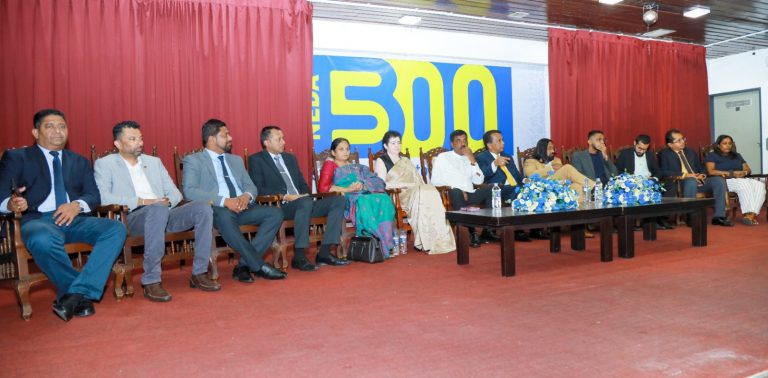
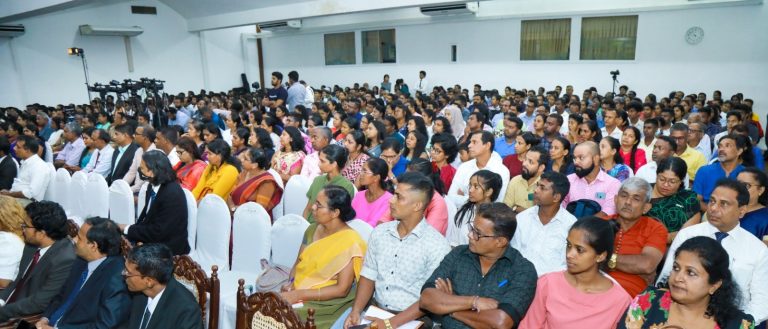
? Highlights from the Inauguration of the B500 Project ?
The opening ceremony of the "B500" national program to win the local market and develop them into 500 international level brands by selecting 500 micro, small and medium enterprises at the rural level by the National Enterprise Development Authority (NEDA), which is the home of the entrepreneurs in the creation of an export-oriented manufacturing economy, in March 2024. On the 22nd, from 10.00 a.m. to 2.30 p.m, it was held in a grand manner at the Foundation Corporate Auditorium.
Honourable Minister of State for Small and Medium Enterprises Development Mr. Prasanna Ranaweera, Secretary to the Ministry of Industries Mrs. Thilaka Jayasundara, Chairman/Director General of the National Enterprise Development Authority Mr. Lasantha Kariyapperuma, Dr. Philip Neri Mullegama, Deputy General Manager of Sri Lanka Telecom (SLT) Mr. Ajith Kularathna, Senior Manager of SLT Mr. Lalwin De Zoysa, Vice President (Strategic Business) of Orel IT Mr. Bandula Dissanayake, General Manager of Orel Academy Dr. Kapila Giragama, Co-Founder of Loku Business Institute Mr. Mustaq Indrues, Co-founder and CEO of Simple Books Mr. Abhit Sabir, was attended by a distinguished group representing the public and private sectors.
NEDA recognized that the primary problem faced by MSMEs at the rural level in Sri Lanka is market-related problems. The primary reason for this is the minimal knowledge among entrepreneurs regarding branding. As a remedy for this, NEDA initiated the national program to develop 500 brands called "B500 project". Accordingly, on the 19th of February 2024, NEDA called for applications for the "B500 Project". Consequently, 500 entrepreneurs with the potential to conquer the international market were selected for the "B500 project" according to a scoring procedure with structured selection criteria from over 3000 local entrepreneurs applications.
Through this "B500 project”, rural-level entrepreneurs should be informed about branding in order to make business brands that can attract the export market. Establishing strategic plans to promote each brand in association with them, giving priority in the various services offered by the government to entrepreneurs, providing free facilities related to branding, creating local and foreign market opportunities, making proper government intervention for business issues. , is designed to promote business sustainability and attitudes towards branding in society through effective follow-up processes.




